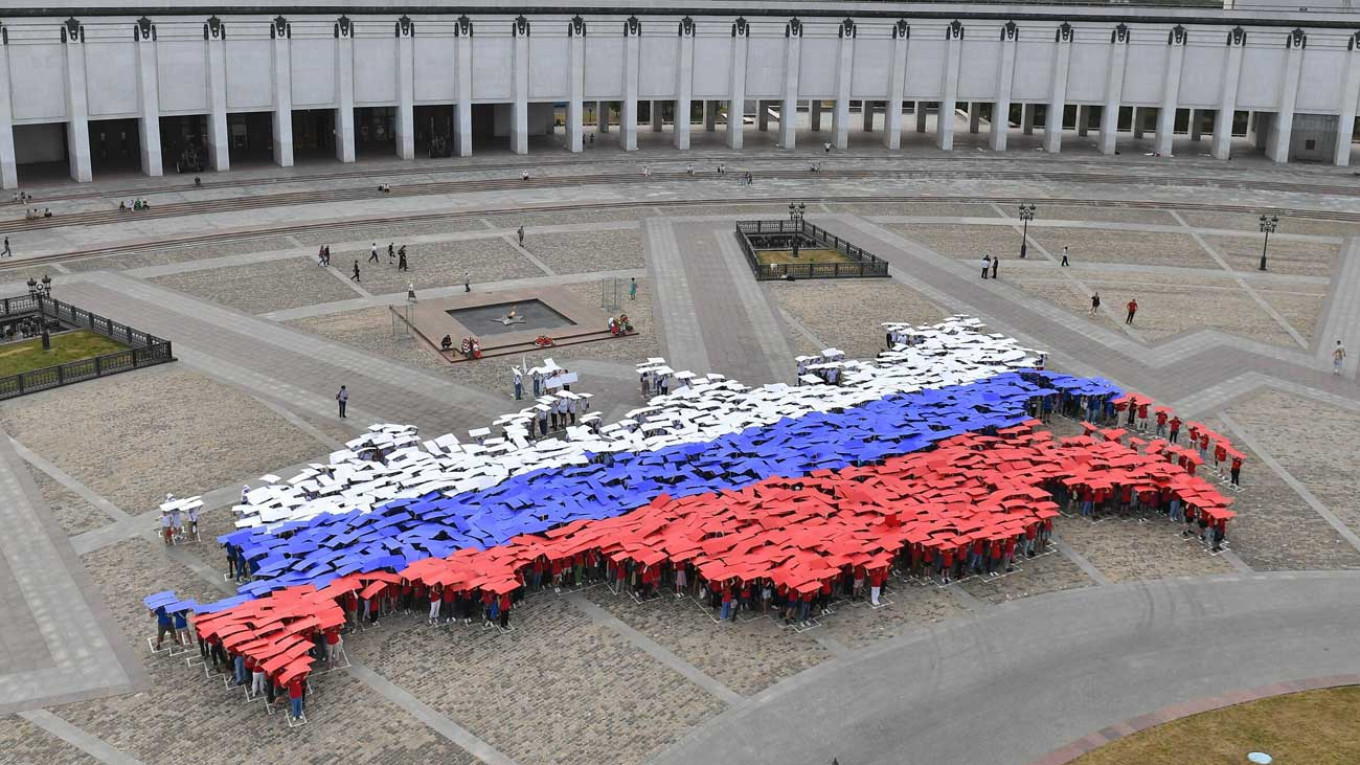Russia’s barbaric war has evoked global condemnation, and now Ukraine is getting the help it needs. But at first, some leading Western pundits described Ukraine as a failed state and a sort of tactical nuisance that was meddling in the business of the real players.
Failed state and not Russia?
For some reason, the war in Ukraine merged the Right and the Left of the Western political spectrum in weird combinations. On the Right, people such as Niall Ferguson believe that post-Soviet Russia is a successful country that uses its natural resources and military strength to bring law and order to a dangerous world. Some of these people think that contemporary Russia, a source of economic chaos and nuclear threats, restrains the Antichrist from bringing the world to an end.
On the Left, people such as Noam Chomsky believe that the Soviet Union was good in everything that matters, for example in its anti-Americanism. More surprisingly, some of these people still think that contemporary Russia, which tops the worldwide tables of inequality, is the embodiment of their lost paradise.
On the day of invasion, Christian Lindner, the powerful German finance minister, told the Ukrainian ambassador that Kyiv would fall the next day. The ambassador, Andrij Melnyk, tried to argue and then wept. Two months later, Lindner swore that Germany would never stop supporting Ukraine. On the other side of the Atlantic, Katrina vanden Huevel, the influential publisher of the Nation magazine, wrote a week before the invasion: “Ukraine is the closest thing Europe has to a failed state.” She (wrongly) named three American presidents who all refused to provide military support to Ukraine because the country “was not worth being defended.” Finally, she suggested “a deal that guarantees Ukraine’s sovereignty and independence in exchange for guaranteeing its neutrality.” But of course, Ukraine gave up its nuclear weapons and acquired its sovereignty and independence thirty years earlier — all guaranteed by the U.S., Russia, and other countries.
In his well-informed 2021 book, “Klimat: Russia in the Age of Climate Change,” Georgetown University professor Thane Gustafson concluded that the impact of energy transition on Russia would happen in two phases. In the 2020s, global energy demand would remain strong and so would be Russian exports. In the early 2030s, revenues from oil, gas and coal would decline sharply. By 2050, Russia’s total export would be down by half. This would be a bleak picture, wrote Gustafson, “a major turning point for Russia.” What Gustafson predicted for 2050, occurred in 2022, although in a different version. The causality was also very different than what he predicted. Wars and revolutions accelerate the flow of history.
The road to Poltava
Predictions differ from explanations and prophets from scholars. But war is fast, and predictions come true – or not – quickly enough for people to remember them and judge their authors. In January 2022, historian Niall Ferguson compared Putin to Peter the Great, the founder of the Russian Empire. Like Peter, Putin would win his own battle of Poltava, Ferguson wrote. Russia’s imperial history, he speculated, “inspires today’s Tsar Vladimir, much more than the dark chapters of Stalin’s reign of terror.” Indeed, a couple of months later, in the midst of his war, Putin publicly compared himself to Peter the Great.
Ferguson understood Putin but failed to understand his war. Denying Russia’s economic and demographic problems and believing in an easy victory, Ferguson stated that Ukraine would “receive no significant military support from the West.” Putin would win his war, and Ferguson would win his punchline: “Do not be surprised if [Putin’s] victory parade takes place in Poltava,” he wrote just before the war started.
But Ferguson’s mood changed quickly. “What makes history so hard to predict,” he wrote in early March, “is that most disasters come out of left field.” Left or right, this is the question; but the historian reaffirms his license to predict: “The language people speak in the corridors of power… is not economics or politics. It is history.” Thus, Ferguson predicted that Mariupol would fall in a few days; Biden’s administration would not support Ukraine; and since most Russian leaders died of natural causes, so would Putin. We know that at least some of his predictions did not come true.
The rule of nemesis
In June 2022, John Mearsheimer stated that the reason for Putin’s war was the threat of NATO: if Ukraine joined, Russia would suffer “existentially,” and this justified Russia’s aggression. These claims of the apologist of political realism have been refuted by real politics in a month. Finland and Sweden have joined NATO because of Putin’s war. With their accession, NATO is much closer to Russia’s vital centers than it would have been if Ukraine ever succeeded with its application to join NATO. This chain of events is a great example of political nemesis: Putin was so afraid of NATO that he brought it right to the gates of his hometown of St. Petersburg. Moreover, exhausted by his war in Ukraine, Putin accepted NATO expansion with no fuss.
The same tale of nemesis unfolded with the gas pipelines. Putin wanted his gas to bypass Ukraine so much that he built two hugely expensive pipelines under the Baltic Sea. One of them was completed but did not start working because of the war, and another is barely functioning. In the meantime, Russian gas keeps flowing through Ukraine.
Whatever these false prophets told us, Ukrainians have been valiant on the battlefield and artful in diplomacy. Blending his political and theatrical skills, President Zelensky has produced a daily show in his capital, where he was able to grant popularity to some Western leaders or refuse hospitality to others. From a nonplace that required the article "the" as if it had no proper name, Ukraine has turned into the political center of the world.
The future is like Rorschach inkblots: people respond to uncertainty by projecting their desires. Neither pundits nor prophets know the future; but those who predict it, reveal themselves. There is no worse mistake for pundits than making the wrong predictions during a war. We learn their desires, and they are laughable.
A Message from The Moscow Times:
Dear readers,
We are facing unprecedented challenges. Russia's Prosecutor General's Office has designated The Moscow Times as an "undesirable" organization, criminalizing our work and putting our staff at risk of prosecution. This follows our earlier unjust labeling as a "foreign agent."
These actions are direct attempts to silence independent journalism in Russia. The authorities claim our work "discredits the decisions of the Russian leadership." We see things differently: we strive to provide accurate, unbiased reporting on Russia.
We, the journalists of The Moscow Times, refuse to be silenced. But to continue our work, we need your help.
Your support, no matter how small, makes a world of difference. If you can, please support us monthly starting from just $2. It's quick to set up, and every contribution makes a significant impact.
By supporting The Moscow Times, you're defending open, independent journalism in the face of repression. Thank you for standing with us.
Remind me later.








